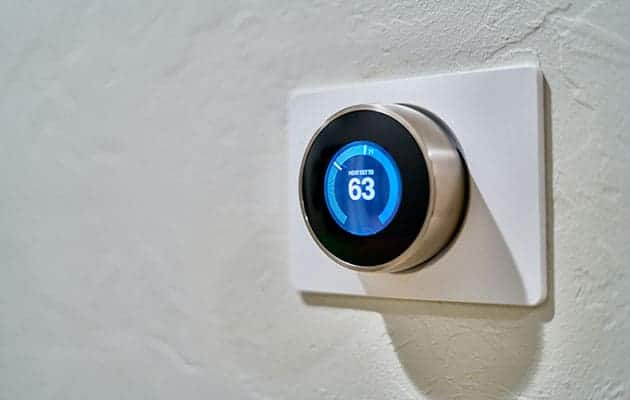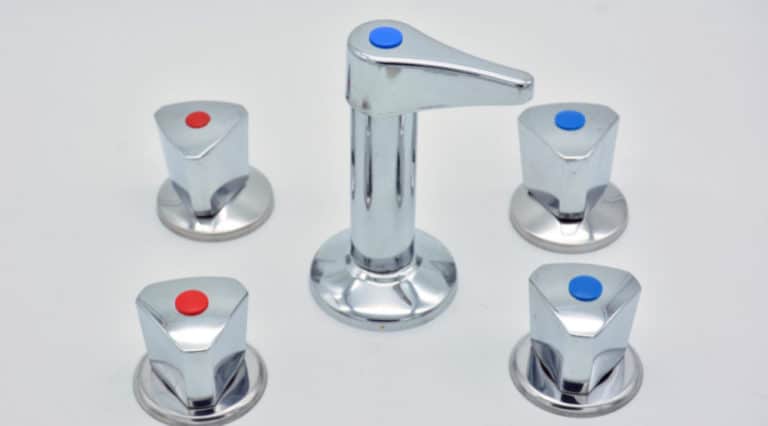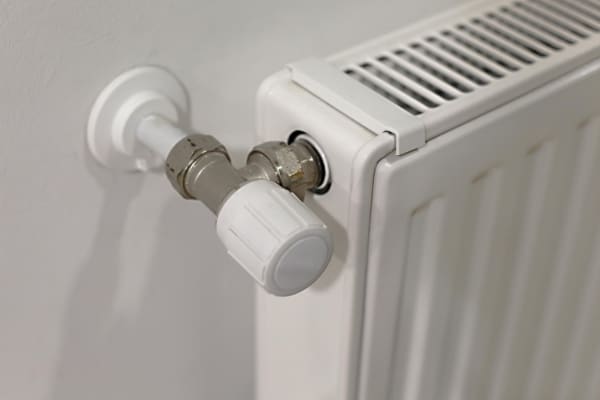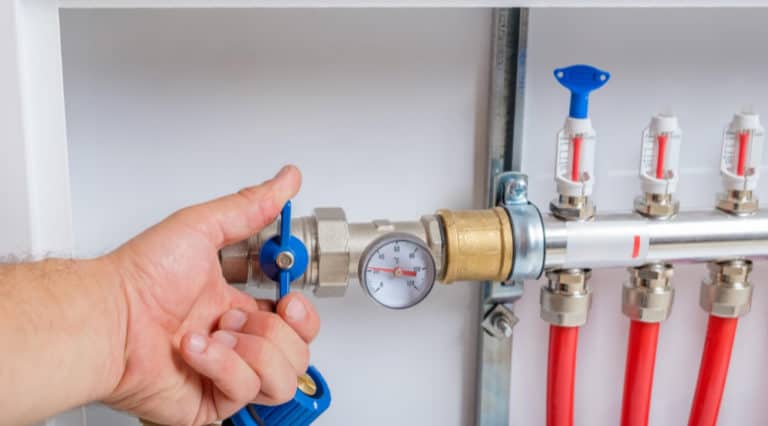Find My Local Expert Is your Heater Energy-Efficient? Most people...
Read More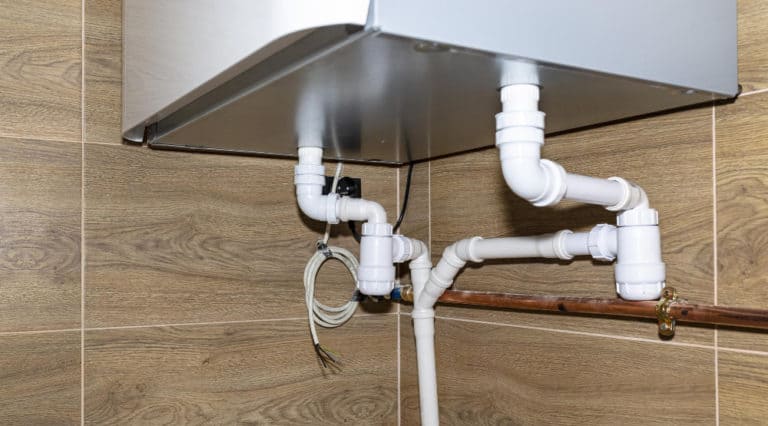
How to Fix a Condensate Pipe Leak
Most people who’ve seen a particular popular space war film where the good guys destroy an enormous death machine by dropping a bomb down a very convenient chute have, at some point, wondered why the bad guys would design their death machine in such a way that it can be so easily thwarted. Well, as it turns out, your boiler is probably designed with a similar weakness.
Granted, you shouldn’t have to worry about any rebel alliances flying explosives into your boiler (we hope!) but there is a part of most boilers called a condensate pipe, and this seemingly unimportant little pipe can bring your boiler to its knees.
In most cases, problems experienced with your condensate pipe are relatively minor. In some cases, the condensate pipe can stop the boiler working all together, but these situations rarely damage the boiler, just prevent it from functioning. Which is not to say that you should just ignore the problem—especially if you are living in one of the cooler climates of the world—but you probably won’t have to shell out for an entirely new boiler because of it.
Now, if you feel like we’re getting ahead of ourselves here, don’t worry, we’ll explain everything. Starting with…
What is a Condensate Pipe, and Where is it Located?
In the UK, it has been a requirement for many years now (since 2005, to be precise) that gas combi-boilers incorporate condensing technology to make them more efficient.
Essentially, this system recaptures heat that would ordinarily have disappeared up the flue and out into the world, and instead uses that heat in the water heating process. This condensing process sees the gasses from the flue undergo a substantial temperature decrease of somewhere in the region of 80 , which causes condensation to form, and that condensation needs to go somewhere.
Enter the condensate pipe.
The condensate pipe transports this water out of your boiler system, often to be dropped in with your household waste water. It is generally advised to connect the pipe to your waste water system on the inside of the property, where it will be protected from the temperatures outside, but this is not always possible.
In those cases, the pipe will be run outside the property and, in climates where the temperatures can get low enough, become vulnerable to freezing.
Where is the Condensate Pipe Located?
Most of the piping connected to your boiler should be metal, whereas the condensate pipe has to be made from plastic. Under UK regulations, the pipe will have to be 22 m in diameter for an internally connected pipe, but could be up to 32 mm if the pipe connects to your drainage on the outside of the property. Either way, it should be clearly distinguishable from the rest of the pipes going into your boiler. The reason for the larger size of external condensate pipes is because it reduces the risk of the pipe freezing in cold weather, though it does not eliminate it entirely.
If you follow this pipe’s route, it should connect to a waste water pipe at some stage, as close to the boiler as possible. It will be angled steeply to avoid waste water from washing back up the condensate pipe, and if it is outside, it may be clad to add further protection from freezing.
Why is a Leaking Condensate Pipe Bad
The water that travels through a condensate pipe is slightly acidic, which is why the condensate pipe needs to be plastic because metal piping would corrode. Of course, leaking water of any kind is not ideal in or around your home, leaking acidic water can cause more damage if it lands on something susceptible to corrosion. And, if outside, a gust of wind could blow the acidic water off onto a car and damage the paint over time!
For condensate pipes that are outside in regions where the temperatures can get quite low, leaking pipes also represent an increased risk of causing further damage to the pipe, since the frozen water in the gap where the water is leaking will expand, and make the leak worse.
There is also the issue of quality of life. A condensate that is leaking inside your home could well be audible. Modern boilers often expel condensate in waves, rather than a constant trickle, so as to further reduce the risk of freezing. But that also means that the quantity of water going through the pipe during such a wave is greater, and any leakage would be more noticeable. If the pipe is anywhere near where you are sleeping or relaxing, it could very quickly become a stressful and infuriating experience.
Common Reasons for a Condensate Pipe Leaking
Now you know what a condensate pipe is, what it does, where to find, and why a leaking condensate pipe is a bad thing, let’s take a look at why your pipe might be leaking.
It should be noted that some older installations, as well as installations where the installer was perhaps not as keen as they could have been, may have the condensate pipe simply exiting the property and depositing the condensate on the floor outside. While this is not, strictly speaking, a problem (though you may want to keep your car away from that spot), we would recommend getting it properly plumbed into your waste water system.
That being said, we are referring to leaking from the pipe itself due to a flaw, rather than the pipe just terminating without reaching your waste water system.
Broken Heat Exchanger
As mentioned above, the condensate is rapidly brought down to a much lower temperature than it was previously. The bulk of the operation takes place at a heat exchanger, but if that heat exchanger cracks or develops holes, it can leak the main water in the system—the water that is being heated—into the condensate pipe.
While the plastic of your condensate pipe is designed to withstand the acidic nature of the condensate, it is not necessarily designed to withstand the high temperatures of the water in our boiler, and could cause the joints to start leaking, or even break entirely.
When this happens, unfortunately, you will need to replace the heat exchanger, which will mean calling in a gas safe qualified technician.
Condensate Pipe Joint Leaks
Leaking at the joints of your condensate pipe can happen for a number of reasons, including the one we mentioned above. They can also happen because of inferior installation, age, or from being subjected to extreme conditions outside.
If the affected sections of pipe are not directly connected to the boiler, you shouldn’t have any problem taking care of this issue yourself. Just be sure to use the appropriate pipe, and make sure the boiler is not running when you do it. If you have sensitive skin, it might be worth wearing protection of some kind. The acidity level of the condensate shouldn’t be high enough to injure, but it could cause irritation.
Boiler Condensate Trap is Blocked
The purpose of the condensate trap is essentially to collect the condensate and store it until it is ready to be discharged. As mentioned above, this is a method employed by modern boilers to reduce the risk of freezing, since a larger amount of warm water is much less likely to freeze than a constant slow trickle of cooling water.
You can identify a blockage sometimes by the noise your boiler makes. If there is a kind of gurgling noise that can also be heard from the exhaust end of the flue, it is a sign that there is a blockage, and it may cause your boiler to not fire up the next time it is due to.
This can happen over time, as debris builds up in the condensate trap. Cleaning the trap out is not a particularly difficult job, but you will need to consult your boiler’s manual for the steps for your specific model of boiler.
Boiler Condensate Pipe is Blocked
In essence, this problem is exactly the same as the above problem, with the difference here being that the pipe itself is blocked, rather than the trap. This most commonly happens because of frozen water in the pipe, but it is possible to become blocked with debris as well.
If it is frozen, you can probably thaw it out with some warm water. Don’t use boiling hot water as this may cause your pipe to develop a leak as mentioned above. Going forward, you will want to get your condensate pipe insulated to stop this from happening again.
Hiring a Heating Engineer
Many of the solutions we have covered here can be carried out by a regular person with no plumbing or gas safe qualifications. However, your boiler is a complicated machine that makes use of a flammable gas, and should not be taken lightly. If you’re unsure at all, your best course of action is to call a heating engineer and let them take care of it.
Get a quote from an expert today!
You May Also Like...
Hot and Cold Water Knobs Not Working
Find My Local Expert Hot and Cold Water Knobs Not...
Read MoreFree Storage Heaters for UK Pensioners
Find My Local Expert Free Storage Heaters for UK Pensioners...
Read MoreEasy Ways to Bleed and Maintain your Boiler
Find My Local Expert Easy Ways to Bleed and Maintain...
Read MoreBoiler Losing Pressure: Here’s how to fix it!
Find My Local Expert Boiler Losing Pressure? Here’s How to...
Read MoreNeed your Boiler Serviced?
My Trusted Expert Guarantee
Experts Have Been Vetted & Approved
